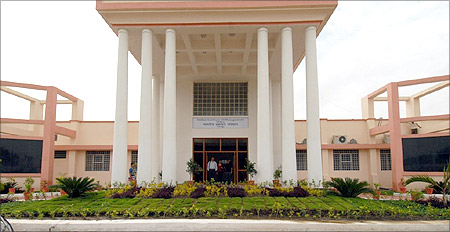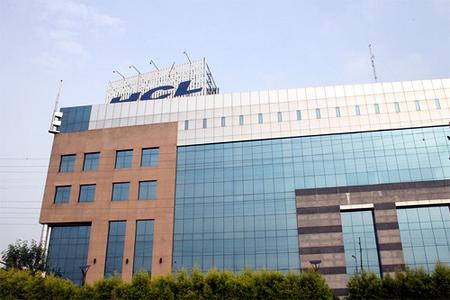 | « Back to article | Print this article |
How companies plan to hire employable graduates
Tired of complaining about the employability of graduates in the country, individual IT-ITeS firms are now tying up with educational institutes to be able to hire more employable graduates.
In the bargain, apart from faculty development and creation of desired curriculum there will be real-time work experience for students, at the campus level.
"It is paramount for the industry to work closely with educational institutions to integrate market evolution with business curriculum," said Mohit Thukral, senior vice-president and business leader, Banking, Financial Services and Insurance, Genpact.
Click NEXT to read more...
How companies plan to hire employable graduates
Genpact had on Tuesday signed an agreement with the Indian Institute of Management, Udaipur (IIM-U) to create a "knowledge partnership."
Under this seven-year agreement, IIM-U and Genpact will jointly develop a centre for asset-based lending and finance, and an analytics laboratory that will give students the opportunity to solve real-time problems, work on proprietary and industry software tools and technology as well as get hands on industry experience.
Genpact will offer summer internships to full-time students and set up a merit- based scholarship. Students who get the post-graduate diploma in management will be eligible for full-time employment at Genpact in its banking, analytics and finance businesses.
Click NEXT to read more...
How companies plan to hire employable graduates
Last week, Genpact entered into a tie-up with Institute of Management Technology, Ghaziabad, for training in analytics, one of the fastest growing segment for the industry.
HCL Technologies is also working with education institutes to train students at the graduate level. The company had last year entered into a tie-up with Madras University, to hire graduate students (non-technical) with basic skills set for its call centre operations.
Click NEXT to read more...
How companies plan to hire employable graduates
"Last year, we hired close to 1,800 students. This was the first batch that we got on board after our tie-up with Madras University. The best experience from this tie-up is that we have not seen any drastic surprises. In the past, students would suddenly decide to leave the training period. Now, we have 100 per cent retention, as students are aware of what they are getting into," said Subrat Chakravarty, HR head of business services, HCL Technologies.
HCL Technologies has now gone ahead and entered a similar tie-up with Bharathiar University, Chennai. The company has also constructed a facility within the university that allows it to train students and interact with the faculty.
Click NEXT to read more...
How companies plan to hire employable graduates
Chakravarty shares that such tie-ups are necessary for the students as they are not aware of the business environment.
"It is very important to have a career dialogue. Students at this juncture are very confused, as they enter the job market," he said.
With the current education system falling short of addressing the employability factor of engineering and non-technical graduates, the IT and ITeS industry has taken onto itself to address this problem.
Click NEXT to read more...
How companies plan to hire employable graduates
"Our idea is to create a skillset base in some of the niche upcoming business areas. We expect to be able to hire at least 20-25 per cent of the base of students who take up these courses," said Thukral.
Genpact last week also entered into a similar tie-up with The Institute of Management Technology, Ghaziabad for training in analytics, one of the fastest growing segment for the industry.
The company is also in talks with another institute that will create a curriculum and training for actuarial.
The need to tie-up with educational institutes is also arising from the fact that the industry is maturing and needs skillsets that are caters to upcoming technology areas like cloud, capital market in finance, analytics and others.
Click NEXT to read more...
How companies plan to hire employable graduates
Take the case of technology solutions firm Sapient. The firms finance and commodity business unit Sapient Global Markets, have set up a Global market institute that trains students in capital markets.
"We do hire engineers but though they have all the technical knowledge they are not aware of how the Capital Markets works, especially the Wall Street. It is difficult to find talent in India in capital market. From 2008-09 onwards we created and ran a programme that catered to this segment. This programme runs for four to six months and involves, classroom training, and real-time engagement in projects," said Abhishek Bhattacharya, Director Sapient Global Markets.
Every year the company trains 300 people through this institute, for which it also flies in people from the US.







